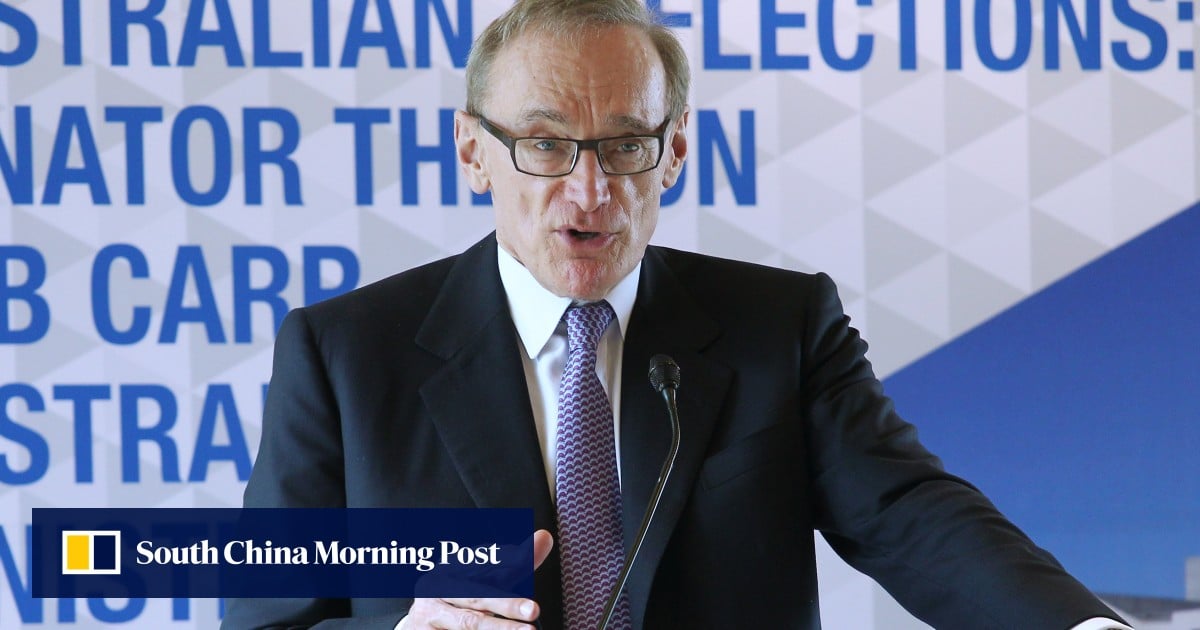Due to Australia and New Zealand’s punitive defamation laws, media outlets that had published or broadcasted Peters’s remarks have since removed them from their websites and social media feeds.
Daigou: Australia’s Chinese personal shoppers rebrand to stay relevant
Daigou: Australia’s Chinese personal shoppers rebrand to stay relevant
His verbal volley came amid an increasingly fractious debate over New Zealand’s potential participation in a defence technology pact with Australia, the United Kingdom and the United States.
Wellington is studying whether to take part in the so-called “pillar two” of the Aukus agreement, which focuses on developing advanced military technology like drones, artificial intelligence and hypersonic missiles.
Participation would be a sea change for New Zealand, which, although a member of the US-led Five Eyes intelligence sharing network, has pursued an independent foreign policy and depends heavily on China for trade.
Peters on Wednesday ruled out New Zealand quickly joining the Aukus pact but argued his country should consider taking part when the time comes.
Chinese premier set to visit Australia in June, lobster ban expected to be axed
Chinese premier set to visit Australia in June, lobster ban expected to be axed
“It would be utterly irresponsible for any government of any stripe to not consider whether collaborating with like-minded partners on advances in technology is in our national interest,” he said.
Canberra, London and Washington have also held talks with Japan and South Korea on taking part in Aukus pillar two, and appear further along in the process than New Zealand.
Carr is known as a vocal supporter of close political and trade ties with China, the world’s second-largest economy after the United States.
After leaving office he was director of the Australia-China Relations Institute, a part of the University of Technology Sydney which today takes funding from a range of companies that do business with or in China, including Beijing’s state-owned China Construction Bank.

Carr, like the Chinese government, has also been a fierce critic of Aukus, particularly pillar one of the agreement, which is focused on supplying Australia with nuclear-powered conventionally armed submarines.
Last month, Chinese foreign minister Wang Yi said the three-way agreement “runs counter” to a South Pacific treaty banning nuclear weapons in the region.
Carr claimed in a statement Thursday that “Peters is trying to sell New Zealanders a reversal of their non-nuclear principles” by wanting to take part in the Aukus pact.
New Zealand has a firm no-nuclear policy dating back to the 1980s.
However, no one in the New Zealand government, Canberra, London or Washington has suggested Wellington would play any part in the nuclear submarine project.
Winston Peters has once again embarrassed New Zealand by making potentially defamatory allegations about a senior and respected leader from our closest ally
Peters later said in parliament – where he enjoys legal privileges – that he stood by the remarks.
His office said late Thursday that “the Minister will respond if he receives formal notification of any such [legal] action”.
New Zealand opposition leader and former prime minister Chris Hipkins called on Peters to resign.
“Winston Peters has once again embarrassed New Zealand by making potentially defamatory allegations about a senior and respected leader from our closest ally,” Hipkins said.
“The Prime Minister needs to show some leadership and stand him down immediately.”

